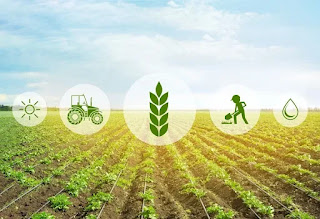From my response to Facebook chats etcetera.
A LONG time ago, China and Japan closed their ports to Western "outsiders." Before the Opium Wars (1839-1860), China’s protectionist policy limited trade with the West to the port of Canton (now Guangzhou). Meanwhile, the only Japanese port that was open to the West in the 1630s was Nagasaki, or a small artificial island called Dejima, but only a few Chinese and Dutch merchants were allowed to trade in Japan then.

Well, the U.S. was seeking new markets for its manufactured goods and raw materials, and Japan had been practicing isolationism for 220 years! No way. Year, 1853. President Millard Fillmore ordered Commodore Matthew Perry to use “gunboat diplomacy” to establish trade relations with Japan in 1853. Of course, Mr Perry succeeded. And then came the Boxer Rebellion (1899 to 1901, Qing Dynasty) versus the Eight-Nation Alliance of foreign powers (you know who led the group). The Boxers were defeated so the Alliance forced the dynasty to submit to a punitive settlement that included opening new ports to trade with European and American traders.
Of course, Spain, Portugal, Britain, Netherlands, and other European powers were already embroiled in power play out there, who'd get to the region's massive resources. For example, old Burma had one of the earliest oil diggings, a major reason why the British came. Etc etcetera. Sans war (which of course happened) there's nothing wrong with trade between countries. So I don't get why many Americans dislike trade with China, when back in history, the West had to use an iron arm to pressure the Chinese to do business. 🍍🥥🍅

AMERICA is the world's #1 consumer market, regardless of China. The Chinese can sell and invest in other countries, especially with its BRICS bloc buddies which are huge economies, plus those “little” countries that they handed investments and loans. But since the trade pact of 2000, U.S. corporations have gained a lot of economic benefits from China as well. As we speak, 8,000+ US companies are operating there, including giants like Microsoft, GM, Boeing, Coke and Apple Inc. Yet China isn't even a top 15 FDI country in the US (#1 is Japan).
Meanwhile, sure we can perhaps boycott Chinese products per sinophobia. Yet the APIs in America's endless supply of drugs, silicon in our computers, and many more products that don't show "made in China" actually came from China. 🍍🥥🍅
AMERICA will have to sell (or export) its produce, still is.
And Americans are still consuming its produce (from local farmers), in abundance, so much so that 40 percent of food in the U.S. is wasted or thrown away, annually. Meanwhile, it is not the fault of importing countries such as China and Mexico why our market is clogged with their products or products made by them or bought by U.S. companies from them to sell us.
The economic system that governs the U.S. which benefits huge American corporations does that. NAFTA, WTO, and as I said U.S./China trade pact. The last year the U.S. had a trade surplus was 1975. Hint: EPA was born in 1970. Overproduction (agriculture and manufacturing, including oil digging and mineral mining) does mess up the environment but we need to consume, right? As we desire a cool air. Hence, we gotta buy or import from others. The U.S. is already #1 producer of oil and natural gas yet we are still buying. Clogging the internal market with all these makes them relatively financially affordable to consumers (check gasoline prices in Europe, for example). Etc etcetera.

Bottomline, how do we fix this? Government leadership? How? This is America Incorporated. Maybe cut our consumerism? How? I don't know of any American with no maintenance meds or computer run gadgets or a car. Even U.S.-owned guns are manufactured elsewhere. Ergo, just enjoy life. Imagine the people in Gaza or Sudan. We got life, they don't. 🍍🥥🍅
WE should not assume that others don't or they don't do "their best" to help make this world a better place. Me? But "support to the livelihoods of farmers" is a long discussion. But I will do away with the word "our." I view farmers in China, Philippines, Mexico, the U.S.--Afghanistan, Mali, and Lithuania etcetera--with the same level of humanity. But not how I view Big Corporations who buy their produce and market them home-based or overseas and the government leadership that implements "rules" on the trading table.
In the micro. I try not to throw away food or I "recycle" leftovers for dinner. I. cook my food or try not to eat food from fast food counters or restaurants. That's how I was raised or grew up. I am not a picky eater either (although I was a vegetarian for many years in my younger life). I eat anything that is farmed, manufactured or whatever my personal economics can afford. As long as they are called Food. Yet I don't really ponder if my dinner was farmed by migrants or white people, black people, Chinese or Mexicans. I try not to lose my appetite with drama. Instead I trajectory my displeasure towards the Bigger Power (no, not God, LOL! I mean political power of profit). 🍍🥥🍅
[Photos: World Bank. AZoSensors. Minnesota Department of Agriculture.]





